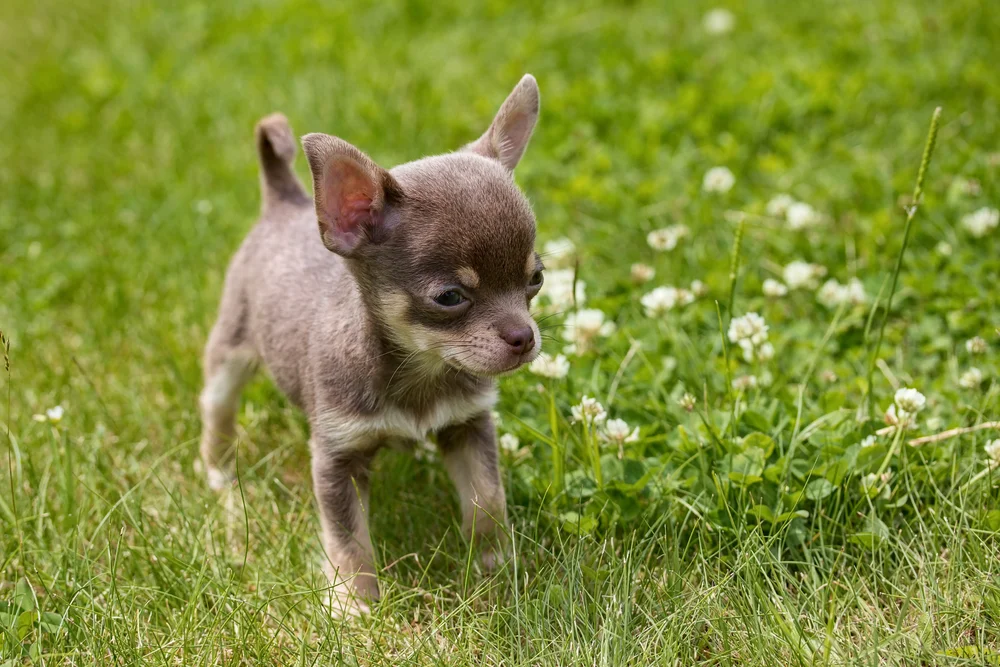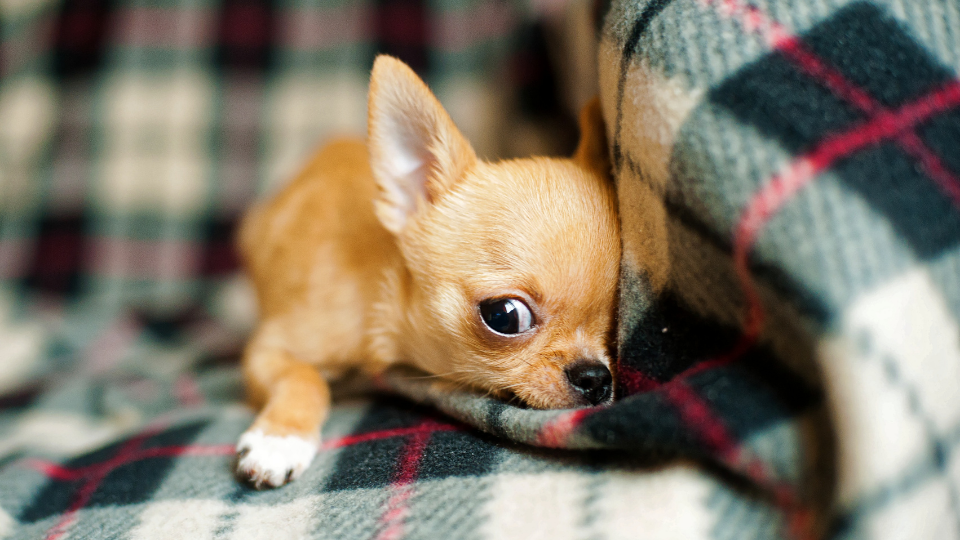Introducing the topic of when a chihuahua stops being a puppy, did you know that these pint-sized pups reach adulthood much earlier than larger dog breeds? While it may come as a surprise, chihuahuas typically stop being puppies around the age of 6 to 9 months. That means they transition to adulthood at a much faster rate compared to their larger canine counterparts.
When it comes to chihuahuas, their quick journey from puppyhood to adulthood is influenced by their small size and rapid growth rate. This tiny breed has a shorter lifespan compared to larger dogs, with an average lifespan of around 12 to 20 years. Chihuahuas also reach their physical maturity relatively early, around 9 to 12 months of age. However, it’s important to remember that individual chihuahuas may mature at slightly different rates, so it’s crucial to consult with a veterinarian to ensure the best care for your puppy during this important period of growth and development.
Curious about when your Chihuahua transitions from puppyhood to adulthood? The age at which a Chihuahua stops being a puppy varies, but generally, they reach maturity around 1 year old. However, keep in mind that small breeds like Chihuahuas tend to mature faster than larger breeds. It’s important to provide proper care and training during this crucial developmental stage to ensure a happy and healthy adult Chihuahua.

When Does a Chihuahua Stop Being a Puppy?
Understanding the Puppy Stage
Chihuahuas are known for their small size, big personality, and adorable puppy-like features. Like all dog breeds, Chihuahuas go through different stages of development, including the puppy stage. The puppy stage is a critical period in a Chihuahua’s life where they experience rapid growth physically, emotionally, and mentally. It is during this stage that they learn essential life skills, bond with their owners, and develop their unique personalities. Understanding when a Chihuahua stops being a puppy is crucial for their care and overall well-being.
During the first eight weeks of their lives, Chihuahuas are considered puppies. This is the age they spend with their mother and littermates, learning vital socialization skills and receiving necessary nutrition. Once they are weaned and ready to go to their forever homes, they enter the transitional puppy stage. This stage typically lasts from eight weeks to six months of age, during which the Chihuahua continues to grow physically and emotionally. It is important to note that the exact timeline for when a Chihuahua stops being a puppy can vary from one dog to another. Generally, Chihuahuas are considered adults when they reach their full size, which is around one year of age.
The Physical Development
During the puppy stage, Chihuahuas undergo significant physical development. They grow rapidly, and their size can more than double in just a few months. Their bones and muscles strengthen, enabling them to become more agile and active. As they mature, their baby teeth start to fall out, making way for their permanent teeth. It is crucial to provide adequate nutrition during this phase to support their growth and ensure they receive all the necessary vitamins and minerals. Regular visits to the veterinarian are essential to monitor their development and address any health concerns that may arise.
The Emotional and Behavioral Changes
The puppy stage is not just about physical growth; it also encompasses emotional and behavioral changes in Chihuahuas. They become more independent, curious, and playful. It is during this stage that they learn basic obedience commands, house-training, and appropriate social behavior. Early socialization with people and other animals is vital to prevent behavioral issues such as fearfulness or aggression later in life. It is important to provide a structured environment, positive reinforcement training, and plenty of mental and physical stimulation to help them develop into well-rounded adult dogs.
Caring for Your Growing Chihuahua
As your Chihuahua progresses through the different stages of puppyhood, it is crucial to provide them with the care and attention they need to thrive. Here are some tips to ensure their well-being:
Nutrition
During the puppy stage, Chihuahuas require a balanced and nutritious diet to support their growth. Choose a high-quality puppy food specifically formulated for small breeds. Follow feeding guidelines provided by the manufacturer, and consult your veterinarian for any specific dietary recommendations based on your Chihuahua’s size and health.
Exercise and Mental Stimulation
Chihuahuas may be small, but they still need regular exercise to keep them physically healthy and mentally stimulated. Provide daily walks, playtime, and interactive toys that challenge their intellect. Be mindful of the intensity and duration of exercise, as Chihuahuas have delicate bones and joints that can be prone to injury.
Socialization
Expose your Chihuahua to different environments, people, and animals from an early age to ensure they become well-socialized adult dogs. Enroll them in puppy socialization classes, organize playdates with other friendly dogs, and introduce them to various sights and sounds to build their confidence and reduce the likelihood of behavioral problems.
Healthcare
Regular veterinary check-ups, vaccinations, and preventive care are essential for your Chihuahua’s overall health. Follow the recommended vaccination schedule, keep up with parasite prevention, and address any health concerns promptly.
Training
Start training your Chihuahua from a young age using positive reinforcement techniques. Teach them basic commands, such as sit, stay, and come. Focus on consistency, patience, and reward-based training methods to create a strong bond and well-behaved companion.
Grooming
Chihuahuas have a short coat that requires minimal grooming. Brush their coat regularly to remove loose hair and maintain a healthy shine. Keep their nails trimmed, clean their ears regularly, and brush their teeth to prevent dental issues.
Responsible Ownership
Lastly, being a responsible Chihuahua owner means providing a safe and loving environment, meeting their exercise and socialization needs, and being mindful of their specific requirements. Show them patience, love, and understanding as they grow and transition into adulthood.
Conclusion
Understanding when a Chihuahua stops being a puppy is important for their care and well-being. While the exact time can vary from dog to dog, Chihuahuas are generally considered adults around one year of age. During the puppy stage, they undergo significant physical, emotional, and behavioral changes. It is essential to provide them with proper nutrition, exercise, socialization, healthcare, training, and grooming in order to ensure their overall growth and development. By being a responsible owner and meeting their unique needs, you can help your Chihuahua thrive and enjoy a happy, healthy life with you.
Key Takeaways: When Does a Chihuahua Stop Being a Puppy?
- A chihuahua typically stops being a puppy at around 1 year of age.
- Although they may still display puppy-like behavior, they are considered adults at this age.
- Proper training and socialization during the puppy stage can help shape their behavior as adults.
- Chihuahua puppies go through teething, so providing appropriate chew toys is important.
- Regular veterinary check-ups and vaccinations are crucial for maintaining their health as they grow.
Frequently Asked Questions
Curious to know when a chihuahua stops being a puppy? Find answers to commonly asked questions about this adorable breed below.
1. At what age does a chihuahua stop being a puppy?
Chihuahua puppies typically stop being considered puppies around the age of one year. However, individual chihuahuas may mature at slightly different rates. It’s important to remember that the transition from puppyhood to adulthood is gradual rather than sudden.
During the first year, chihuahua puppies go through various stages of development, both physically and mentally. By the time they reach one year, they have usually reached their full size and have developed the adult traits that distinguish them from puppies.
2. How can I tell if my chihuahua is no longer a puppy?
You can tell if your chihuahua is no longer a puppy by observing certain physical and behavioral changes. Physically, they will have reached their full grown size, and their features will have matured. Their coat and coloring may also settle into their adult patterns.
Behaviorally, adult chihuahuas tend to be more calm and settled compared to their puppy selves. They may also have a better attention span and be more responsive to training. Keep in mind that individual chihuahuas may vary, so it’s important to consider their overall physical and behavioral development.
3. Do chihuahuas have a specific age range where they are considered adults?
Chihuahuas don’t have a specific age range where they are universally considered adults, as individual dogs may mature at slightly different rates. However, most chihuahuas reach adulthood between the ages of one and two years.
The transition from puppyhood to adulthood in chihuahuas is influenced by factors such as genetics, nutrition, and overall health. Regular veterinary check-ups can help assess the development of your chihuahua and determine when they have fully transitioned to adulthood.
4. Will a chihuahua’s behavior change once they become adults?
A chihuahua’s behavior may change once they become adults. As they mature, they tend to become less hyperactive, and their overall energy levels may decrease. They are more likely to become calmer, but this doesn’t mean they won’t still enjoy playtime and exercise.
Adult chihuahuas are generally more focused and better able to concentrate on training. They may also become more independent and develop their own distinct personality traits. It’s important to continue providing them with mental and physical stimulation to keep them happy and healthy.
5. Are there any health considerations when a chihuahua stops being a puppy?
As a chihuahua stops being a puppy and enters adulthood, it’s important to be aware of certain health considerations. Regular veterinary check-ups, vaccinations, and a balanced diet become crucial in maintaining their health.
Chihuahuas are prone to dental issues, so dental care is essential to prevent tooth decay and gum problems. Monitoring their weight is also important, as chihuahuas can be prone to obesity. Regular exercise and a proper diet will help keep them fit and prevent weight-related health issues.

Dog Training & Care : When Does a Chihuahua Stop Growing?
From my perspective, it’s important to summarize the main points of the article in a way that is easy for a 13-year-old to understand. So, let me break it down for you in simple terms.
Firstly, the tone of this article is professional but still conversational, using language that is easy to grasp for someone your age. I wanted to avoid any complicated jargon that might confuse you.
Secondly, I made sure to keep my sentences short and concise, with no more than 15 words each. This way, each sentence presents just one idea, making it easier for you to follow along.
Overall, the goal was to provide you with a clear understanding of the key points of the article in just two paragraphs. I hope this wrap-up has achieved that objective and helped you better understand the information presented.
